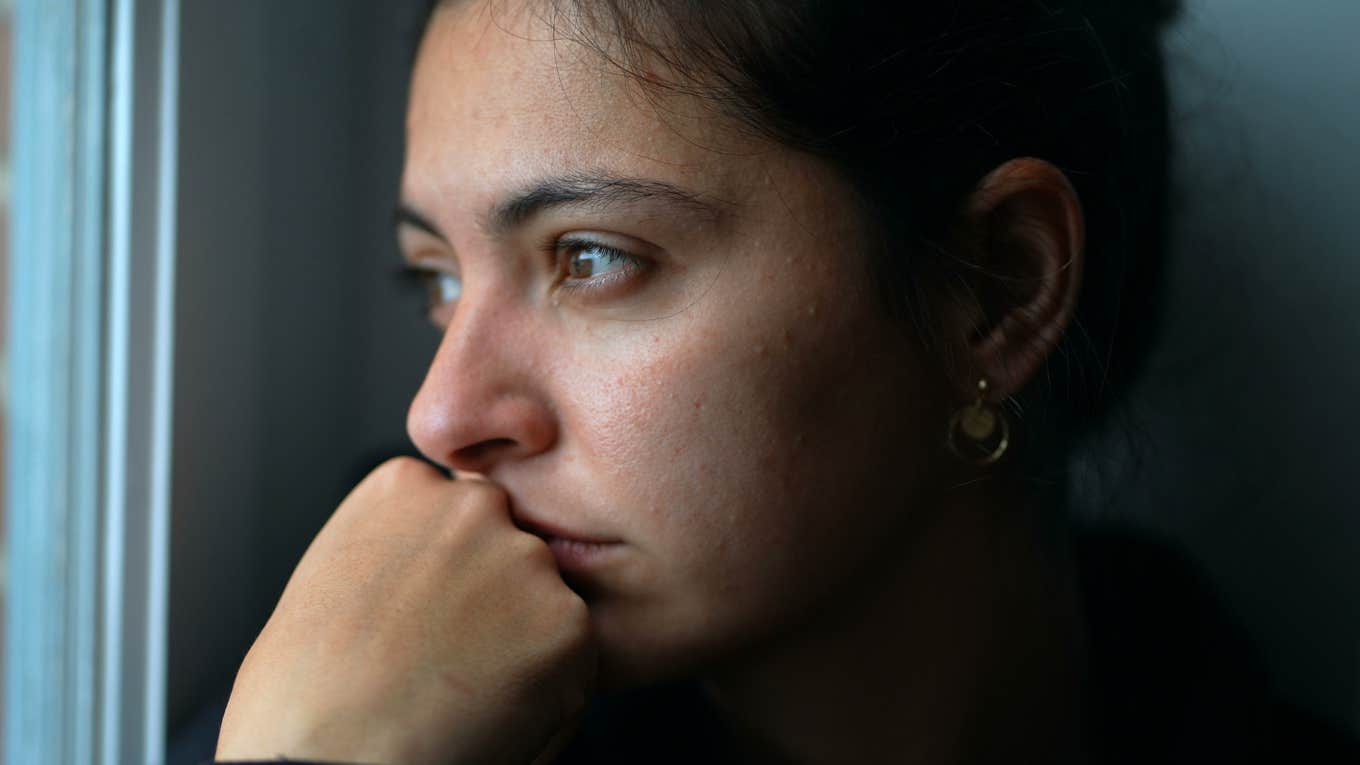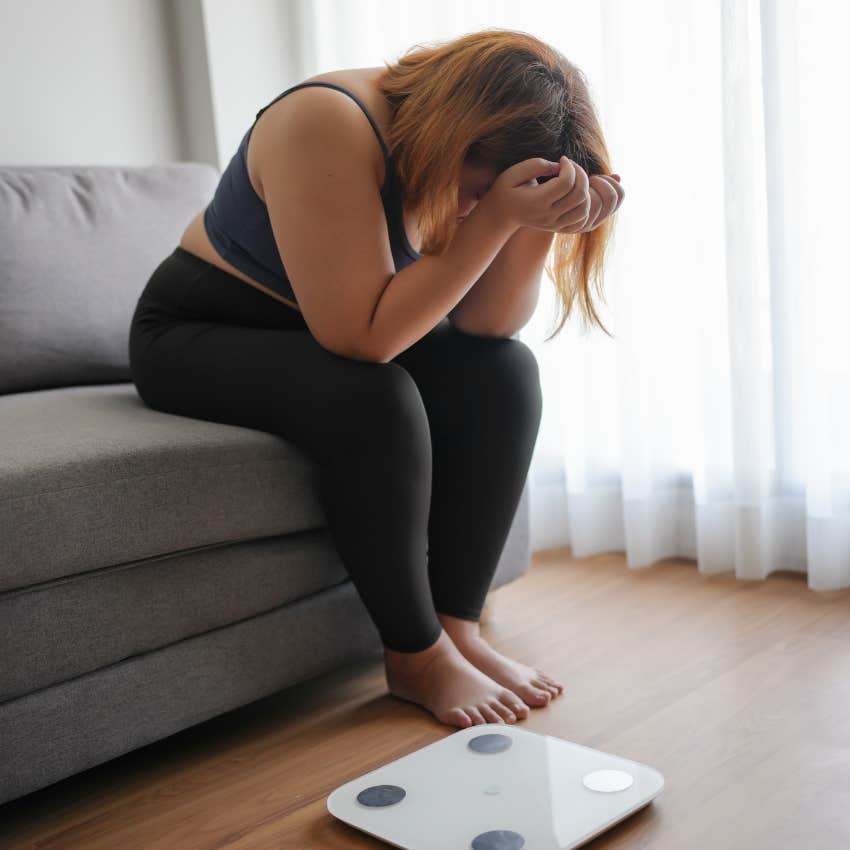6 Ways Daylight Saving Time Can Actually Make You Sick, According To Research
Whether it's "spring forward" or "fall back," adjusting to the time change messes with your mental and physical health.
 Bricolage | Shutterstock
Bricolage | Shutterstock It's almost time to "fall back." You know, that fall weekend when Daylight Saving Time officially ends. In places where the change in time is observed, clocks will be set back an hour to extend daylight hours because we get a whole lot less sunlight in the winter months. But not everyone buys into the practice, and plenty would prefer to get rid of it altogether.
It's not just the inconvenience of a messed-up sleep schedule that has people fed up with the time change, either. Research has shown that Daylight Saving Time can actually mess with your health
Here are 6 ways Daylight Saving Time can actually make you sick:
1. Your heart attack risk increases
 Tyler Olson | Shutterstock
Tyler Olson | Shutterstock
In general, heart attacks tend to happen most on a Monday for a variety of reasons. Work-related stress and disruption to a normal sleep routine are the most common complaints.
But a study presented at the 2014 American College of Cardiology meeting in Washington found that the risk of a heart attack increased by 25% on the Monday after the spring switch to Daylight Saving Time. Dr. Sarah Spelsberg explained, "This spike is attributed to the combination of losing an hour of sleep and the sudden disruption to the body’s natural rhythm. For individuals already at risk of cardiovascular issues, this seemingly minor change can have serious consequences."
In 2008, a Swedish study concluded that an increased risk of heart attacks could happen up to three weeks after Daylight Saving Time. People who are at higher risk for a heart attack, as Dr. Spelsberg noted, are the ones most affected by the time change, especially individuals who smoke.
2. You may feel more irritable
Feeling tired and exhausted can make anyone miserable. For individuals who struggle with mental health disorders or depression, the disruption of sleep caused by the Daylight Saving Time change can be serious.
Daylight Saving Time can lead to an increase in restlessness and anxiety. Restlessness can create insomnia. Insomnia can reduce tolerance to stressful situations, which can lead to social problems at work, home, and school. Some individuals may call out sick, and that can, in turn, increase financial stressors. Stress isn't good for your health period, but during Daylight Saving Time, when your cardiovascular health is already at risk, stress only makes that worse.
It can take weeks to adjust to a time change, and that lack of sleep can also disrupt feelings of well-being. The older you get, the harder it is to bounce back from that time change, especially since the rest of your life doesn't simply pause so you can adapt.
3. You're more susceptible to weight gain
 Lee Charlie | Shutterstock
Lee Charlie | Shutterstock
Individuals with diabetes, in particular, are at risk for gaining weight during Daylight Saving Time. The stress caused by change can create a pre-diabetic, insulin-resistant state, which leads to a host of health problems, including weight management.
Hormonal changes also take place during Daylight Saving Time. These hormones can create certain sugar and carbohydrate cravings, which can lead to blood sugar spikes and weight gain.
4. You just may feel apathetic
Nearly everyone complains that they feel more tired after the clocks change, either at the beginning or end of Daylight Saving Time. For some, sleep disruption leads to problems with other behaviors. Feeling tired can create a sense of numbness in a person, making life seem meaningless. For some, this can lead to depression.
According to a 2013 research study, "The impact of daylight saving time on sleep and related behaviours," incidents of insomnia, falling asleep while driving, drinking to relax to try to fall asleep, and even psychosis increase after Daylight Saving Time.
5. You may experience 'brain fog'
 PeopleImages | Shutterstock
PeopleImages | Shutterstock
Daylight Saving Time has also been shown to significantly affect brain chemistry. The mind struggles to process change and maintain a sense of balance when it occurs. That change in time is the exact change that can be so hard to process. This leads to a vicious cycle of anxiety and stress, preventing individuals from falling asleep.
The brain's production of both serotonin, the mood-boosting hormone, and melatonin, the hormone that helps regulate sleep, becomes disrupted, leading to mood swings and insomnia. That can trigger a domino effect of problems, leading to increased stress and a decline in overall well-being.
6. You may have trouble falling asleep
Insomniacs especially dread the disruption of sleep when Daylight Saving Time begins or ends. For those who struggle with recurrent bouts of insomnia or other sleep disorders, the time change is a real problem.
Insomnia can be triggered by anything from increased stress to a disruption in the body's circadian rhythm, which is just a fancy way of saying your body's internal clock. Both of these triggers are directly linked to the time changes associated with the beginning and end of Daylight Saving Time.
Poor sleep hygiene impacts your physical and mental health, creating, again, that domino effect of problems. If you're stuck dealing with the fall back and spring forward of Daylight Saving Time, plan ahead to save yourself and your health from any setbacks. Start adjusting your sleep schedule weeks in advance so, when the actual date arrives, you won't wake up wondering where you are or what time it is.
Aria Gmitter is YourTango's Senior Editor of Horoscopes and Spirituality. She graduated from the Midwestern School of Astrology and has been a practical astrologer for 40 years.

